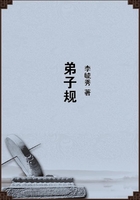Thomas Blinton was a book-hunter. He had always been a book-hunter, ever since, at an extremely early age, he had awakened to the errors of his ways as a collector of stamps and monograms. In book-hunting he saw no harm; nay, he would contrast its joys, in a rather pharisaical style, with the pleasures of shooting and fishing. He constantly declined to believe that the devil came for that renowned amateur of black letter, G. Steevens. Dibdin himself, who tells the story (with obvious anxiety and alarm), pretends to refuse credit to the ghastly narrative. "His language," says Dibdin, in his account of the book-hunter's end, "was, too frequently, the language of imprecation." This is rather good, as if Dibdin thought a gentleman might swear pretty often, but not "TOO frequently." "Although I am not disposed to admit," Dibdin goes on, "the WHOLE of the testimony of the good woman who watched by Steevens's bedside, although my prejudices (as they may be called) will not allow me to believe that the windows shook, and that strange noises and deep groans were heard at midnight in his room, yet no creature of common sense (and this woman possessed the quality in an eminent degree) could mistake oaths for prayers;" and so forth. In short, Dibdin clearly holds that the windows did shake "without a blast," like the banners in Branxholme Hall when somebody came for the Goblin Page.
But Thomas Blinton would hear of none of these things. He said that his taste made him take exercise; that he walked from the City to West Kensington every day, to beat the covers of the book-stalls, while other men travelled in the expensive cab or the unwholesome Metropolitan Railway. We are all apt to hold favourable views of our own amusements, and, for my own part, I believe that trout and salmon are incapable of feeling pain. But the flimsiness of Blinton's theories must be apparent to every unbiassed moralist.
His "harmless taste" really involved most of the deadly sins, or at all events a fair working majority of them. He coveted his neighbours' books. When he got the chance he bought books in a cheap market and sold them in a dear market, thereby degrading literature to the level of trade. He took advantage of the ignorance of uneducated persons who kept book-stalls. He was envious, and grudged the good fortune of others, while he rejoiced in their failures. He turned a deaf ear to the appeals of poverty.
He was luxurious, and laid out more money than he should have done on his selfish pleasures, often adorning a volume with a morocco binding when Mrs. Blinton sighed in vain for some old point d'Alencon lace. Greedy, proud, envious, stingy, extravagant, and sharp in his dealings, Blinton was guilty of most of the sins which the Church recognises as "deadly."On the very day before that of which the affecting history is now to be told, Blinton had been running the usual round of crime. He had (as far as intentions went) defrauded a bookseller in Holywell Street by purchasing from him, for the sum of two shillings, what he took to be a very rare Elzevir. It is true that when he got home and consulted 'Willems,' he found that he had got hold of the wrong copy, in which the figures denoting the numbers of pages are printed right, and which is therefore worth exactly "nuppence" to the collector. But the intention is the thing, and Blinton's intention was distinctly fraudulent. When he discovered his error, then "his language," as Dibdin says, "was that of imprecation." Worse (if possible) than this, Blinton had gone to a sale, begun to bid for 'Les Essais de Michel, Seigneur de Montaigne' (Foppens, MDCLIX.), and, carried away by excitement, had "plunged" to the extent of 15pounds, which was precisely the amount of money he owed his plumber and gasfitter, a worthy man with a large family. Then, meeting a friend (if the book-hunter has friends), or rather an accomplice in lawless enterprise, Blinton had remarked the glee on the other's face. The poor man had purchased a little old Olaus Magnus, with woodcuts, representing were-wolves, fire-drakes, and other fearful wild-fowl, and was happy in his bargain. But Blinton, with fiendish joy, pointed out to him that the index was imperfect, and left him sorrowing.
Deeds more foul have yet to be told. Thomas Blinton had discovered a new sin, so to speak, in the collecting way. Aristophanes says of one of his favourite blackguards, "Not only is he a villain, but he has invented an original villainy." Blinton was like this. He maintained that every man who came to notoriety had, at some period, published a volume of poems which he had afterwards repented of and withdrawn. It was Blinton's hideous pleasure to collect stray copies of these unhappy volumes, these 'Peches de Jeunesse,' which, always and invariably, bear a gushing inscription from the author to a friend. He had all Lord John Manners's poems, and even Mr.
Ruskin's. He had the 'Ode to Despair' of Smith (now a comic writer), and the 'Love Lyrics' of Brown, who is now a permanent under-secretary, than which nothing can be less gay nor more permanent. He had the amatory songs which a dignitary of the Church published and withdrew from circulation. Blinton was wont to say he expected to come across 'Triolets of a Tribune,' by Mr. John Bright, and 'Original Hymns for Infant Minds,' by Mr. Henry Labouchere, if he only hunted long enough.
On the day of which I speak he had secured a volume of love-poems which the author had done his best to destroy, and he had gone to his club and read all the funniest passages aloud to friends of the author, who was on the club committee. Ah, was this a kind action?














